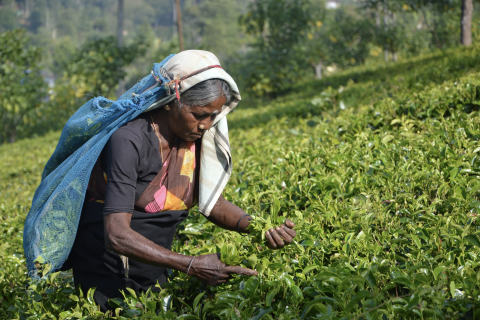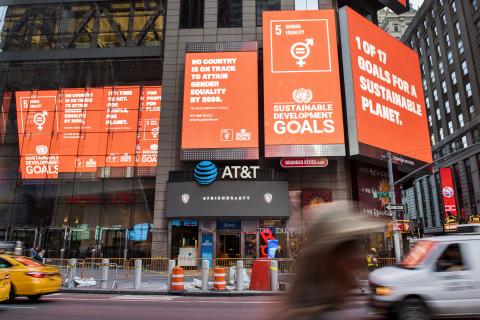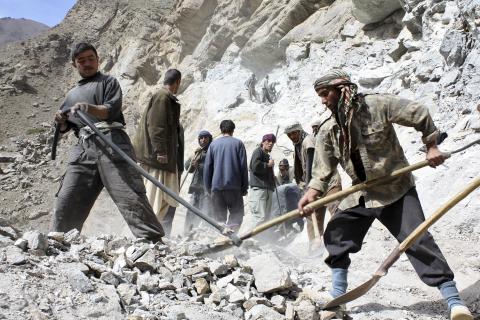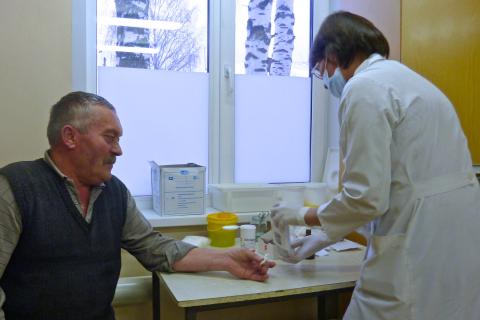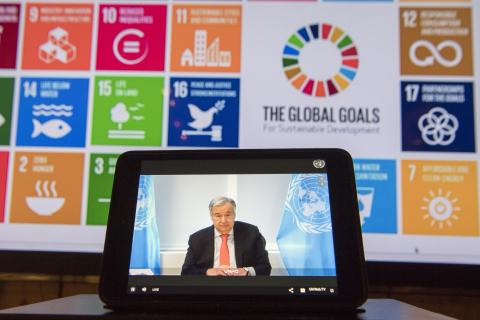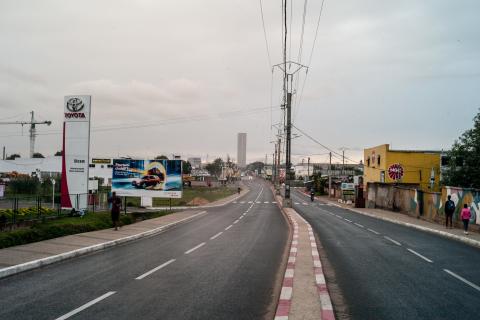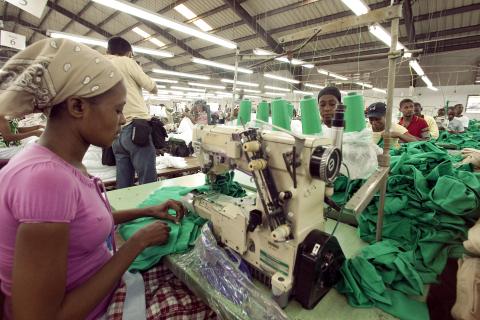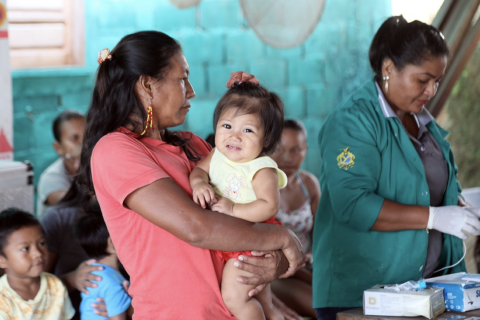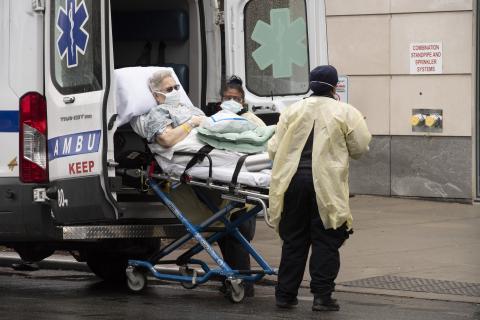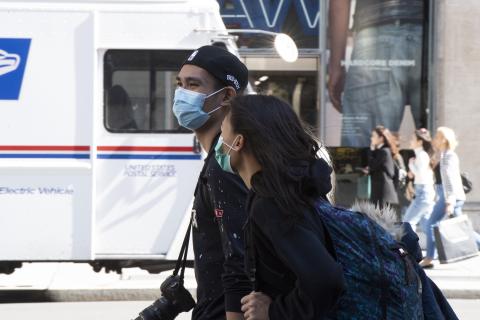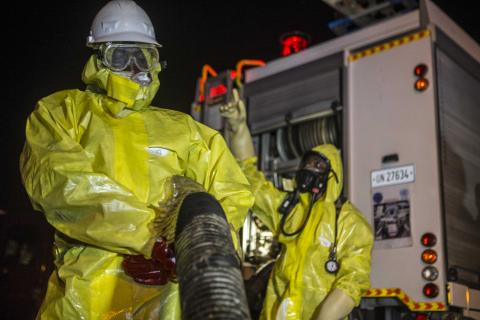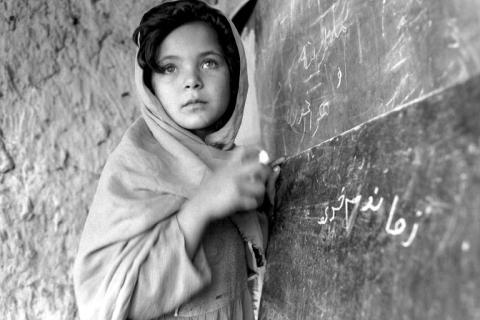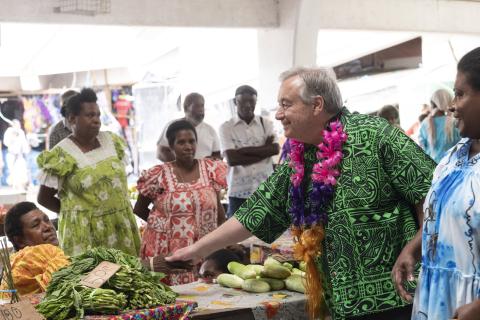
Policy Briefs
UN DESA experts are working to help decision makers around the world navigate tough choices and to find ways to recover better from the COVID-19 crisis and prepare for complex and compounded risks in today's interconnected world.
Watch this space for the latest research, analysis and policy advice from UN DESA, an effort to support and complement the United Nations Secretary-General’s initiatives in response to the COVID-19 crisis, Decade of Action to deliver the Sustainable Development Goals and call by the Member States to advance Our Common Agenda.
UN/DESA Policy Brief #79: The role of public service and public servants during the COVID-19 pandemic
If not contained, the pandemic will jeopardize meeting the 2030 deadline, by diverting resources from development efforts to crisis response. The public servant sits at the heart of ensuring effective response to the crisis, whether as a frontline worker in healthcare, or in devising strategies and plans to mitigate its impact.
UN/DESA Policy Brief #78: Achieving the SDGs through the COVID-19 response and recovery
The impact of COVID-19 on SDG achievement will only be known with certainty in the months to come, but assessments for 2020 are bleak. If responses are ad hoc, underfunded and without a view to long-term goals, decades of progress stand to be reversed. However, as countries begin to move towards recovery, coherent and comprehensive actions can place the world on a robust trajectory towards achieving sustainable development.
UN/DESA Policy Brief #77: How can investors move from greenwashing to SDG-enabling?
Companies must adapt their business model to reflect growing risks and uncertainties, and help build a sustainable world; doing so is necessary to preserve their financial performance in the long run
UN/DESA Policy Brief #76: COVID-19 poses grievous economic challenge to landlocked developing countries
The Covid-19 pandemic is increasing the risks of a balance of payments crisis, a food crisis and a debt crisis in landlocked developing countries
UN/DESA Policy Brief #75: COVID-19: Reaffirming State-People Governance Relationships
This policy brief discusses the role of effective governance, and in particular the role of the relationship between the state and people, in building countries’ resiliency and in responding to and managing nation-wide crises such as the COVID-19 pandemic.
UN/DESA Policy Brief #74: Resilient institutions in times of crisis: transparency, accountability and participation at the national level key to effective response to COVID-19
The coronavirus (COVID-19) pandemic presents a risk to key dimensions of national institutions highlighted in Sustainable Development Goal 16 (in terms of limiting transparency and access to information, eroding safeguards to accountability including integrity violations, fraud and corruption, and restricting participation and engagement).
UN/DESA Policy Brief #73: The impact of COVID-19 on sport, physical activity and well-being and its effects on social development
This policy brief highlights the challenges COVID-19 has posed to both the sporting world and to physical activity and well-being, including for marginalized or vulnerable groups. It further provides recommendations for Governments and other stakeholders, as well as for the UN system, to support the safe reopening of sporting events, as well as to support physical activity during the pandemic and beyond.
UN/DESA Policy Brief #72: COVID-19 and sovereign debt
Without aggressive policy action, the COVID-19 pandemic could turn into a protracted debt crisis for many developing countries. High debt servicing hamstrings developing countries’ immediate response to COVID-19 and rule out needed investment in the United Nations Sustainable Development Goals (SDGs). A debt crisis would dramatically set back sustainable development.
政策简报 72: 关于COVID-19社会经济影响的政策简报: 2019冠状病毒病与主权债务
该简评提出了一些具体的建议,以期扩大对20国集团的双边债务禁令,并促进对复苏和可持续发展目标的投资,建议包括对要求暂停的高负债中等收入国家的偿债,以及引入其他债权人。
UN/DESA Policy Brief #71: COVID-19 pandemic deals a huge blow to the manufacturing exports from LDCs
The COVID-19 pandemic poses a significant economic challenge to LDCs that rely heavily on exporting manufactured goods, particularly clothing and apparel, amid global demand and supply-side shocks.
UN/DESA Policy Brief #70: The Impact of COVID-19 on Indigenous Peoples
COVID-19 presents a new threat to the health and survival of indigenous peoples. Indigenous peoples often experience widespread stigma and discrimination in healthcare settings such as stereotyping and a lack of quality in the care provided, thus compromising standards of care and discouraging them from accessing health care.
UN/DESA Policy Brief #69: Leaving no one behind: the COVID-19 crisis through the disability and gender lens
This policy brief highlights the impact of COVID-19 on women and girls with disabilities and provides policy guidance for governments and other stakeholders to adopt inclusive and accessible measures to not only mitigate the adverse impacts of the crisis but build resilient societies.
UN/DESA Policy Brief #68: COVID-19 and Older Persons: A Defining Moment for an Informed, Inclusive and Targeted Response
Multiple and intersecting forms of discrimination experienced by older persons are exacerbated during the COVID-19 pandemic and aggravate their vulnerabilities.
UN/DESA Policy Brief #67: Protecting and mobilizing youth in COVID-19 responses
Young people will form a key element in an inclusive recovery
and the achievement of the Sustainable Development
Goals (SDGs) during this Decade of Action. However,
the response and recovery must be done in a way that
protects the human rights of all youth.
UN/DESA Policy Brief #66: COVID-19 and the least developed countries
Covid-19 threatens to have devastating consequences in least developed countries (LDCs). Unless bold policy actions are taken by the international community, achieving the Sustainable Development Goals (SDGs) by the 2030 deadline will likely slip out of reach.
UN/DESA Policy Brief #65: Responses to the COVID-19 catastrophe could turn the tide on inequality
This brief identifies inequalities around the COVID-19
pandemic in exposure, vulnerabilities and coping capacity.
It suggests that crisis responses in four areas could turn
the tide on inequality. These include expanding systems
for the universal provision of quality social services;
identifying and empowering vulnerable groups; investing
in jobs and livelihoods; and acting through the multilateral
system to respond to disparities across countries.
UN/DESA Policy Brief #64: The COVID-19 pandemic puts Small Island Developing economies in dire straits
Scaled-up international development cooperation will
remain
critical for ensuring that small island economies
can strengthen their health response to the pandemic, while
safeguarding food security and averting an economic crisis.
UN/DESA Policy Brief #63: The COVID-19 pandemic: A speedy and balanced recovery of Europe will remain critical for the world to return to the trajectory of sustainable development
A speedy, timely and balanced recovery from the crisis will be critical not only for preserving European solidarity, but also for ensuring that the world quickly returns to the trajectory of sustainable development.
UN/DESA Policy Brief #62: The COVID-19 pandemic: a wake-up call for better cooperation at the science–policy–society interface
This brief suggests five early lessons from the response to the pandemic that can strengthen how science and technology are harnessed, including strengthening national capacities for science-based decision making.
UN/DESA Policy Brief #61: COVID-19: Embracing digital government during the pandemic and beyond
The efforts in developing digital government strategies after the COVID-19 crisis should focus on improving data protection and digital inclusion policies as well as on strengthening the policy and technical capabilities of public institutions.
 Welcome to the United Nations
Welcome to the United Nations

